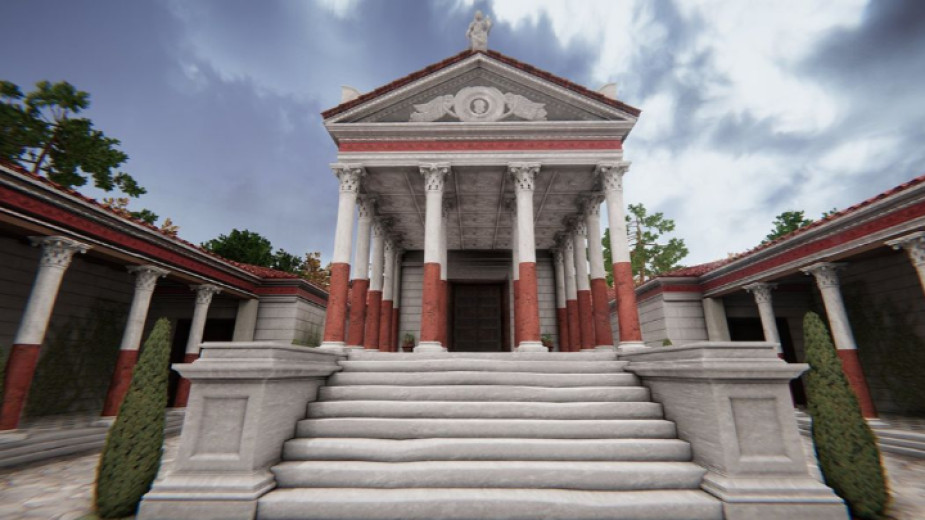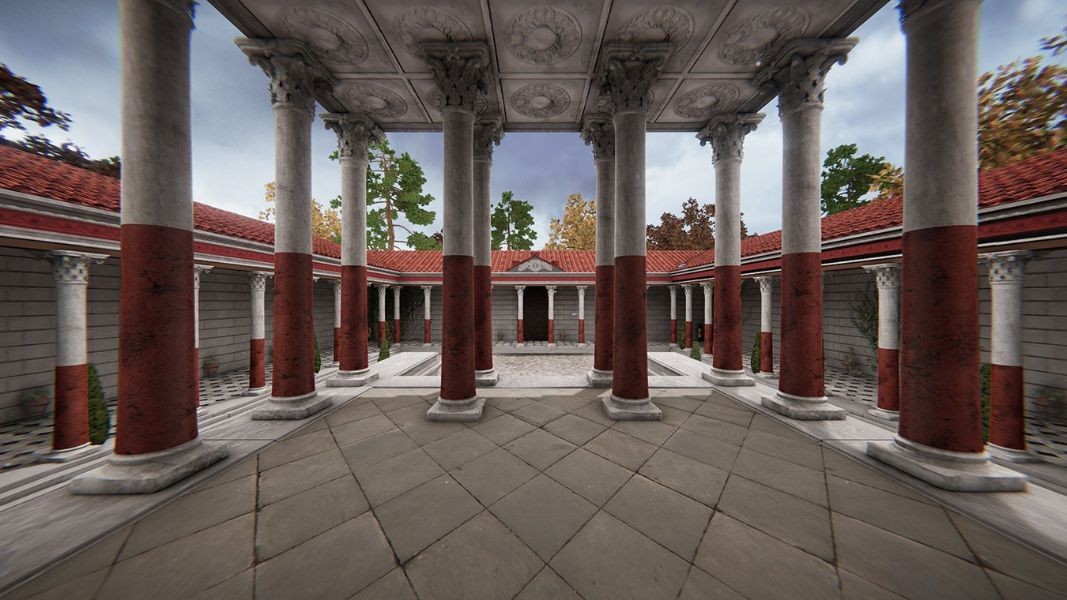 4
4
Visitors to the National History Museum in Sofia can now take a virtual walk in the temple of the ancient Roman goddess of happiness and fortune Fortuna. The building is part of the former Roman colony of Ulpia Oescus near the present-day Bulgarian village of Gigen, near the Danube River. The virtual restoration reveals in the smallest details all the splendor and beauty of the former temple and is now part of the permanent exhibition of Bulgaria’s National History Museum.
The Temple of Fortune (templum Fortunae) was located in the Forum complex of Ulpia Оеscus. It has been fully discovered and studied by archaeologists. The building was constructed in the Corinthian style. According to a Latin inscription, the temple was dedicated to the Roman emperor Commodus (180-192) and was built with the funds of the then "association of craftsmen" (collegium fabrorum) in 190.

The colonnade of the courtyard was decorated with a frieze - architraves with embossed bull heads and laurel garlands. The temple consisted of an entrance hall and a cult room. Its southern façade had four Corinthian columns. On the triangular pediment there were two Victorias depicted, holding a laurel wreath. Inside, in the wreath, was a relief image - probably the head of Medusa, to protect against evil. The temple complex was destroyed by the Goths or by an earthquake in 376-378.

You can find more interesting details related to the tumultuous story of the ancient Roman city of Ulpia Oescus here:
Compiled by Veneta Nikolova
Photos: National History Museum
English version Rositsa Petkova
From 16 September, the History Museum in Panagyurishte will be hosting the original Panagyurishte Gold Treasure. The priceless find will be displayed in the museum’s secure vault hall, where it can be seen until October 23. The treasure will be on..
On September 14, the Bulgarian Orthodox Church bows down before the cross on which Jesus Christ was crucified . The Exaltation of the Holy Cross of the Lord or Cross Day is one of the 12 great Christian holidays. It is one of the four days..
Today, Bulgaria celebrates the 140th anniversary of the Unification of the Principality of Bulgaria and Eastern Rumelia. The center of the festivities is Plovdiv, where on this day in 1885, after the entry of the Golyamo Konare detachment into the..

+359 2 9336 661
